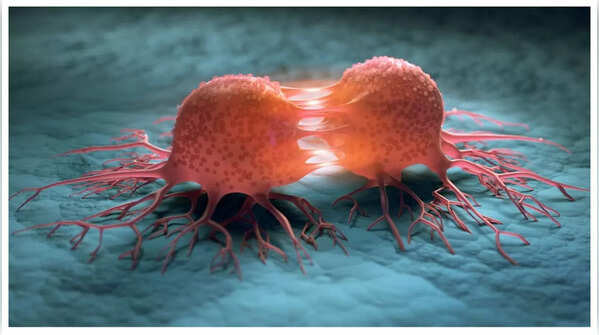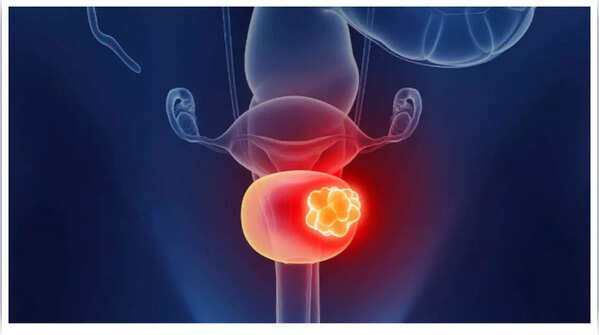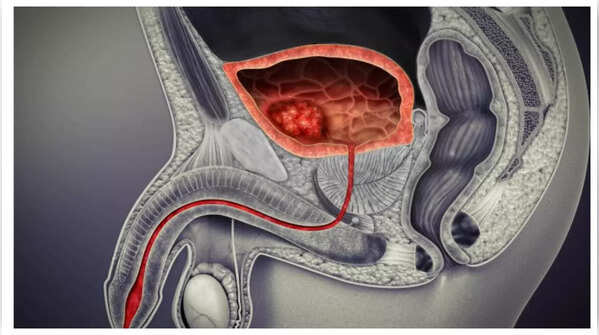Bladder cancer, characterized by the formation of cancerous cells within the bladder tissues, is more prevalent in males over the age of 55. While blood in the urine is often cited as the most prominent initial indicator, subtle symptoms can be easily overlooked in the early stages. Recognizing these less obvious signs is crucial for timely diagnosis and treatment.

Here are five subtle symptoms of bladder cancer that should prompt immediate medical attention, though they are not exclusive to this condition:
An early indication of bladder cancer can be an increased frequency of urination. This might manifest as needing to urinate more often than usual, even without increased fluid intake, or experiencing a sudden, intense urge to urinate even when the bladder isn't full. This symptom is often mistaken for a urinary tract infection or an overactive bladder, delaying its recognition as a potential sign of cancer.

If these changes persist for weeks or are accompanied by other symptoms, seeking medical evaluation is essential. These changes may point to irritation or growths within the bladder requiring medical intervention.
Experiencing pain or a burning sensation while urinating can also be a symptom. This discomfort is often attributed to common infections like UTIs. However, bladder cancer can induce inflammation or irritation of the bladder lining, resulting in discomfort during urination.

Unlike typical urinary tract infections that usually respond to antibiotics, pain associated with bladder cancer may persist or recur after treatment. If painful urination occurs alongside other symptoms like blood in the urine or frequent urination, consulting a healthcare professional is crucial.
Bladder cancer can sometimes create a persistent sensation of needing to urinate immediately, even when the bladder is nearly empty. This feeling can be frustrating, as it doesn't subside after using the restroom. It can also easily be mistaken for a UTI.

This occurs because tumors or abnormal growths in the bladder can irritate nerves or reduce bladder capacity, sending false signals to the brain. If this sensation continues or worsens, prompt evaluation is necessary, as it may indicate bladder abnormalities, including cancer.
While early-stage bladder cancer may not cause pain, discomfort or aching in the lower back or pelvic area can arise as the disease progresses. This pain is often described as dull and persistent and may be mistaken for muscle strain or other common conditions.

Pain in these areas can indicate that the cancer has spread deeper into the bladder wall or nearby tissues. It's crucial not to ignore unexplained lower back or pelvic pain, especially when accompanied by urinary symptoms.
While visible blood in the urine is a well-known symptom, the urine may sometimes appear normal yet still contain trace amounts of blood detectable only through lab tests. This condition, known as microscopic hematuria, might present as a subtle change in urine color rather than a distinct pink or red hue.

Because there is no obvious sign like red or pink urine, microscopic blood in the urine often goes unnoticed unless a urine test is done for other reasons. Individuals with risk factors such as smoking, exposure to harmful chemicals, or a family history of bladder cancer should consider regular urine tests to detect these hidden signs early.
Sources:
Mayo Clinic, Cleveland Clinic, The National Cancer Institute
Newer articles
Older articles
 Moto G54 Gets Significant Price Cut in India, Making Budget Smartphone Even More Appealing
Moto G54 Gets Significant Price Cut in India, Making Budget Smartphone Even More Appealing
 Africa's Rift Valley: Mantle Upwelling Drives Continent's Split and Birth of New Ocean
Africa's Rift Valley: Mantle Upwelling Drives Continent's Split and Birth of New Ocean
 X Cracks Down: Over Half a Million Indian Accounts Suspended for Policy Breaches
X Cracks Down: Over Half a Million Indian Accounts Suspended for Policy Breaches
 Vijay Sethupathi Apologizes Amid Controversy Over Son Surya's Debut Film 'Phoenix'
Vijay Sethupathi Apologizes Amid Controversy Over Son Surya's Debut Film 'Phoenix'
 Jadeja's Accuracy Questioned: Ex-India Pacer Slams Spin Strategy in England Test Loss
Jadeja's Accuracy Questioned: Ex-India Pacer Slams Spin Strategy in England Test Loss
 IRCTC's AI Chatbot Revolutionizes Train Ticket Booking, Refunds, and Information Access
IRCTC's AI Chatbot Revolutionizes Train Ticket Booking, Refunds, and Information Access
 Google Maps Enhances Directional Accuracy with Fused Orientation Provider Update
Google Maps Enhances Directional Accuracy with Fused Orientation Provider Update
 Ashada Gupt Navratri 2025: Unveiling Dates, Sacred Rituals & Hidden Significance of the Monsoon Festival
Ashada Gupt Navratri 2025: Unveiling Dates, Sacred Rituals & Hidden Significance of the Monsoon Festival
 xAI to Open Source Grok, Democratizing Access to Musk's AI Chatbot
xAI to Open Source Grok, Democratizing Access to Musk's AI Chatbot
 Android Users Urged to Patch Now: Critical Security Flaws Expose Devices to Attacks
Android Users Urged to Patch Now: Critical Security Flaws Expose Devices to Attacks